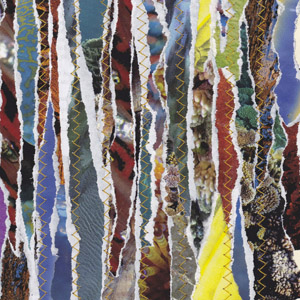Wattville We Jostle EP
The We Jostle EP is the second release from the UK blog/online magazine Sonic Router, […]

The We Jostle EP is the second release from the UK blog/online magazine Sonic Router, which has elected to build its catalog by moving in a completely different direction than its inaugural release, offering a four-track EP of percussive, stripped-back club tunes from newcomer Wattville.
Nineteen-year-old Matthew Evans (a.k.a. Wattville) cites Afro-Caribbean rhythms as a major inspiration for this EP. (First exposed to these sounds as a child, they continue to enter his life, in large part due to the markets found around Evans’ current place of residence in London’s Elephant & Castle neighborhood). The influence is fairly obvious to pick out, as two of the three originals offered on We Jostle predominantly feature various patterns of hand drums, timbales, shakers, tambourines, and the like. However, Wattville does not build tracks merely by sampling global rhythms; instead, he uses their sounds as a jumping-off point to delve into a more modern, club-oriented context. For instance, the title track restricts the percussive elements to a strict grid and joins them up with a heavy kick as well as crisp claps and hats, before eventually lacing the tune with a sequence of detuned synth bells, which run up and down in a slightly atonal pattern. Later on, “Clan” presents a similar concoction, amassing timbales, shakers, and hand drums, with a precise quantization that is only reinforced by the inclusion of skittering hats and a 4/4 kick to fill in the low end.
Even when Evans sheds his tendency for layerings of real-world percussion, as on “Etching,” the result is still a no-frills approach to efficient UK dance music. Fortunately, the We Jostle EP largely works on this front, leaving DJs with a welcome choice between using the tunes simply as tools for transitions or as proper tracks in their own right. Wattville is no doubt under the impression that, at times, less is more on the dancefloor, which is likely why he largely stays out of the way of the way once his potent rhythms are in full swing. This proves to be a wise decision.
Possibly in an attempt to balance out the sparing productions presented before it, the Archie Pelago trio is enlisted to rework “Clan.” Adding a funky bassline and helpings of orchestrated woodwinds to the mix, the Brooklyn outfit continually lands on intriguing, Ethiopian jazz-style chords, making for an appropriately fleshed-out antidote to conclude the EP.

